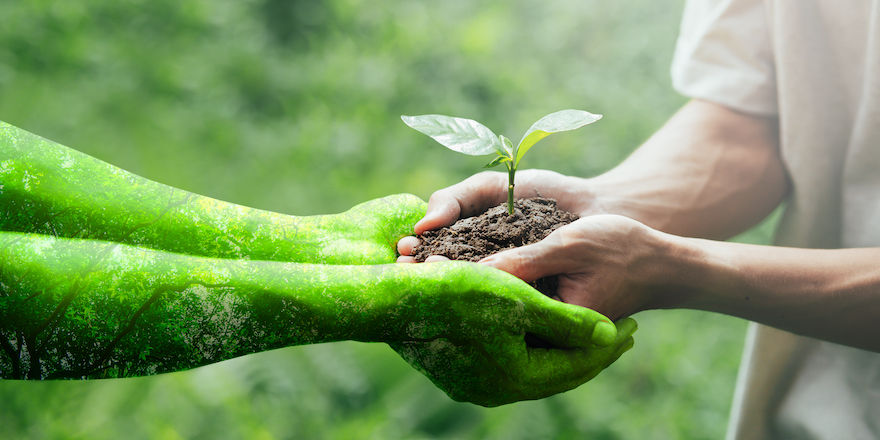University of Southampton Celebrates 50 Years of Environmental Science
Discover how far environmental science has come at the University of Southampton by hearing from past alumni and staff.

TV presenter and zoologist Megan McCubbin joined past and present staff and students to mark 50 years of environmental science at the University of Southampton.
An exciting time to be an environmental scientist
Megan, President of Hampshire and Isle of Wight Wildlife Trust and BBC Springwatch presenter, said: “The role of environmental scientists is increasingly important. They guide governments and guide policies. Sadly in the past this hasn’t happened — there has been so much research but inflexibility at policy level in really acting on it. But times are changing and it’s a really exciting time to be an environmental scientist because there is so much work to do and people are really starting to listen.”
Environmental science at Southampton through the ages
Environmental science began as a degree course at the university in October 1973 — at a time when concern about the environment was becoming a growing issue and activism was mounting. The first Earth Day was held in 1970, and in 1972 the United Nations Conference on the Human Environment in Stockholm was the first world conference featuring the environment as a major topic.
Environmental science at Southampton was initially run by staff from Biology, Geography, and Geology. Since 1973, the department has taught more than 2,000 undergraduate and masters students, supervised more than 70 PhD students, and published more than 300 research papers.
Previous staff and alumni reflect on environmental science at Southampton
Malcolm Hudson, Associate Professor in Environmental Sciences, studied his degree and PhD at Southampton in the ‘90s, and then stayed as a member of academic staff. He said: “It’s so heartening how we have not only survived but grown and succeeded over the years. We’ve gone from being a fringe activity when we started out, to a respected unit working all round the world on environmental science challenges, and our students are really sought-after by a whole range of employers.”
Dawn Trenchard, from Eastleigh, worked at the university from 1957 when she left school, to 2004 when she retired. She was Departmental Secretary for the botany department, then from 1972 she supported environmental science’s administration, becoming full time for environmental science from the late ‘80s. She said: “Back in the ‘70s, environmental science was up-and-coming, and Southampton was one of the first universities in the country to teach it. Environmental science was a very friendly department, with academics and administrative staff being invited and joining in with the social functions that students organised, like dinner, dances, and barbecues.”
Professors Peter Edwards and Angela Gurnell were among the department’s first lecturers, and returned to Southampton for the anniversary celebrations.
Professor Gurnell, Emeritus Professor of Physical Geography at Queen Mary University of London, was Senior Lecturer and then Reader at Southampton from 1973 to 1994. She said: “In the ‘70s, the focus was on fundamental understanding of the environmental sciences and how these areas of science fit together and interact. Today, the specialism is of increasing importance to the broader community, particularly in terms of future environmental change. Environmental scientists are now heard and their expertise affects policy decisions.”
Professor Edwards, Emeritus Professor of Plant Ecology at ETH Zurich, was Senior Lecturer in Ecology at Southampton from 1973 to 1993. He said: “The subject has transformed from a purely academic discipline to the basis for practical action to protect the environment. Students today don’t just want to understand the theory of ecology, but how it can be practically useful.”
Former student Josh Davies, who graduated from Southampton with a masters in Environmental Science in 2013, is now Sustainability and Responsible Banking Senior Manager at Santander UK. He said: “I don’t think I would be where I am today without the fantastic foundation that my Master’s gave me. Through the course, I developed technical and soft skills relevant to my current role. The course gave me opportunities to test these skills in real life through collaborative projects with local organisations, which meant I was well placed to start a career in sustainability once I graduated. At Southampton I made lifelong friendships, took part in sports and joined societies, and loved learning about sustainability through my degree program.”
Learn more about the University of Southampton